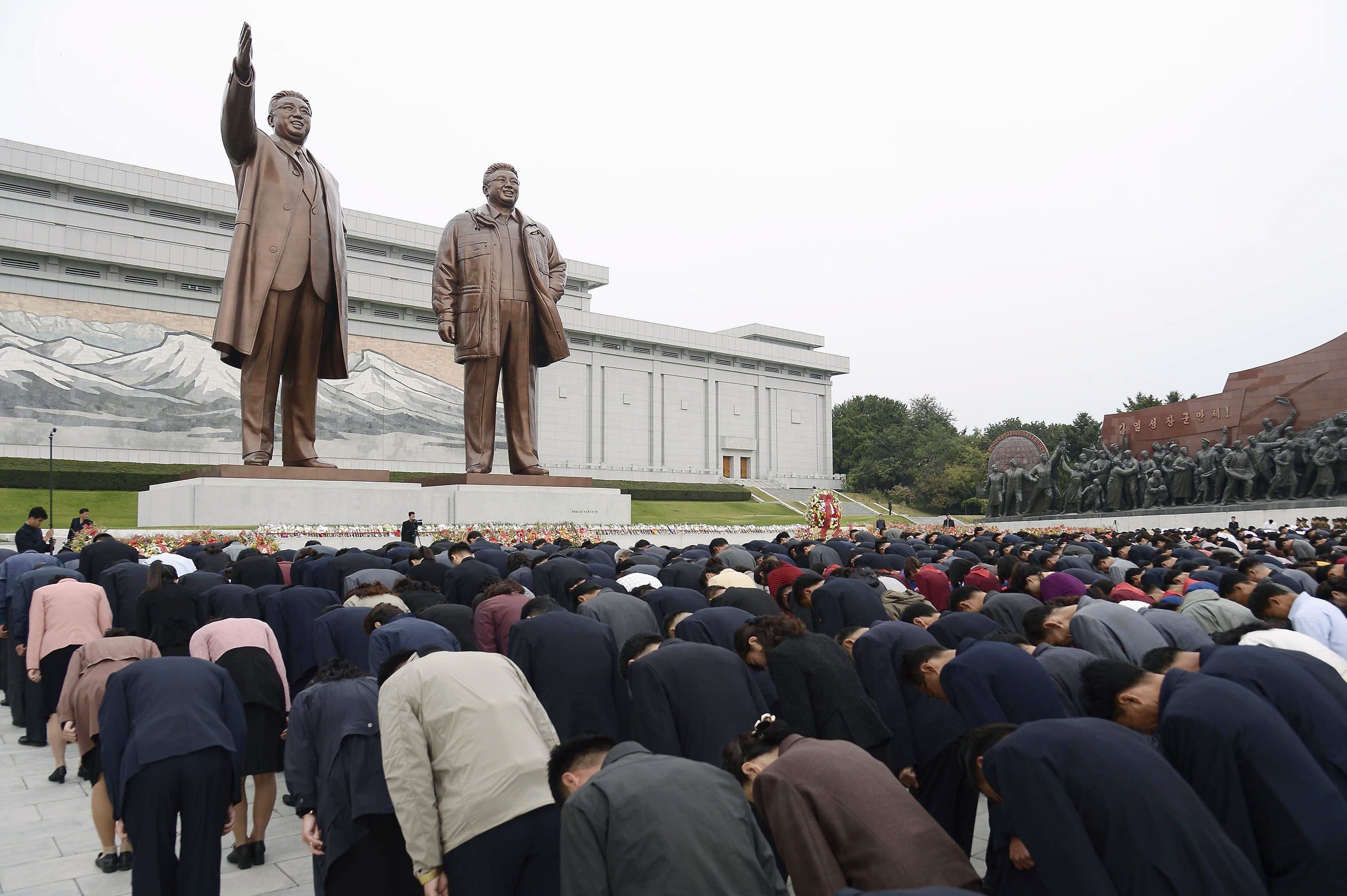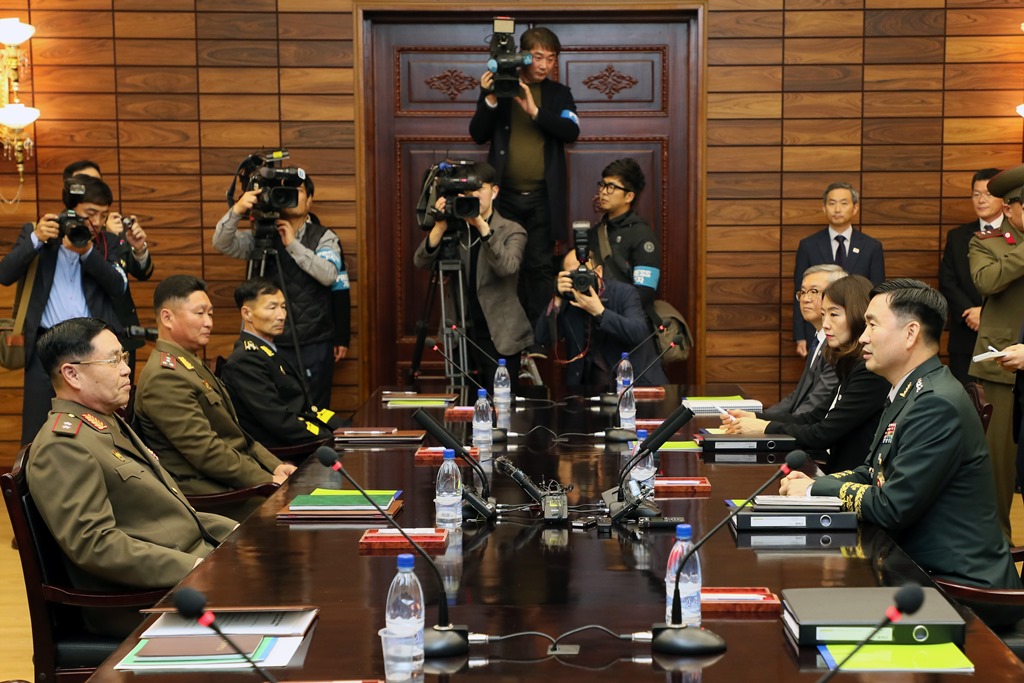Changes in North Korea’s Policy

The decisions of the Central Committee of the Workers’ Party of Korea (WPK), the main institution formally approving the internal and foreign policy of North Korea, are announced during a plenary session. In the last two years, these plenums have been convened in connection with significant events in North Korean foreign policy. The April 2018 session preceded meetings between Kim Jong-un and the presidents Moon Jae-in of South Korea and Donald Trump of the U.S. and underlined the economy as a priority of the North’s policy and openness to dialogue with these two countries. The conciliatory approach included the announcement of a moratorium on nuclear tests and intercontinental ballistic missile (ICBM) testing. In turn, the plenum of April 2019, following the failure of the Kim-Trump summit in Hanoi, signalled the possibility of abandoning the negotiations, giving the U.S. time to change its position by the end of last year.
The impasse in relations with the U.S. persisted after the Hanoi summit despite the Kim-Trump meeting in June and U.S.-North Korea working talks in Stockholm in October, prompting North Korea to reorient its internal and foreign policy. Decisions in this matter were adopted at the WPK Central Committee plenum on 28-31 December 2019. The plenum report is based on the assumption that—contrary to expectations that may have arisen during the negotiations with the U.S.—the economic sanctions on North Korea will not be lifted in the near future. This will condition North Korea’s activities in both internal and foreign policy in 2020.
Domestic Policy
North Korea acknowledges that the sanctions are the most serious problem for its economy. It is also disappointed with the effects of the dialogue with the U.S., which have not led to the lifting of sanctions, so the North Korean authorities are preparing the elites and society for the continuation of the difficult time. This is evidenced by the first use by Kim Jong-un of the term “belt-tightening”, used by his predecessors in difficult economic circumstances or to justify allocating resources for military development at the expense of other sectors. This contrasts with Kim’s recent line when he, in his first public speech in April 2012, declared that “the people would never have to tighten their belt again”. In this spirit, North Korea introduced market-like solutions (although it did not describe them as such) in agriculture or the management of state-owned enterprises. There was also noticeably greater consent for private activities carried out mainly by donju—entrepreneurs associated with the authorities.
Meanwhile, the report mentions a surprising number of examples of economic failure, and blames not only the sanctions but also “evil practices”. To overcome adverse externalities, the report suggests reinforcement of activities in the spirit of “self-reliance”, indicating a mass mobilisation campaign. Calls for “rearranging the economic foundation” and “struggle against anti-socialist deeds” testify to the party’s criticism of the government’s economic activities. It may herald a limitation of liberal reforms and an increase of state control over the economy, which is treated as a guarantor of the regime’s survival in difficult times. This would indicate a strengthening of the army-connected elites that have opposed economic liberalisation in the North Korean decision-making process in recent years.
Foreign and Security Policy
The report is limited in its international part to North Korea’s relations with the U.S., which it describes as in a state of long confrontation. North Korea excludes the continuation of talks with the U.S. on the current terms, which in its opinion boils down to the Americans offering only economic promises—without security guarantees—in exchange for the unilateral nuclear disarmament of the North. North Korea accuses the U.S. of not responding to its conciliatory attitude, maintaining sanctions, and continuing—contrary to Trump’s announcements—drills with South Korea, albeit on a smaller scale. According to North Korea, it is precisely the U.S. maintaining a “hostile policy” that prevents the denuclearisation of the Korean Peninsula.
In this situation, North Korea does not feel obliged to comply with the moratorium on nuclear and ICBM tests adopted in April 2018. In addition, it announced that the “world will witness a new strategic weapon in the near future”, referring to the further development of the North’s deterrence potential and means of delivery, as well as its readiness to demonstrate its growing military capabilities. This is consistent with North Korean activities from the last six months, during which time it conducted several short-range rocket tests, launched an improved ballistic missile from a submarine (SLBM), and tested a new solid fuel engine for use in an ICBM.
To address the external challenges, North Korea will also “strengthen the diplomatic front”, which means strengthening ties with China and Russia because support from these countries weakens the sanctions regime on the North. China’s attitude and its weak compliance—based on media reports—with UN Security Council resolutions (e.g., regarding the mandate that North Korean workers in China return by the end of last year) are crucial for the economic stability of North Korea.
In addition, the report completely skips over relations with South Korea. This is due to the North Korean belief that without economic cooperation—which is impossible due to the sanctions—the inter-Korean dialogue is pointless.
Conclusions and Perspectives
The “belt-tightening” rhetoric suggests that after years of growth (according to South Korean estimates), North Korea’s economy is probably showing signs of stagnation. This may be the result of not only the sanctions but also the limitations of the economic changes, which require easing sanctions to allow capital inflow, among other stimuli. The economic reorientation signalled in the report may indicate a return to the byungjin policy officially abandoned in 2018. It formally assumes parallel nuclear and economic development. In practice, however, this would involve increasing expenditure on the military at the expense of the rest of the economy. It would also mean that the U.S. policy of “maximum pressure” not only has not brought North Korea closer to denuclearisation but has hindered the reform process.
North Korea’s less conciliatory attitude foreshadows a long deadlock in the dialogue with the U.S. There is no reason to state that maintaining pressure via U.S. sanctions will prompt North Korea to abandon nuclear weapons. On the contrary, the North will attempt to force the U.S. to make concessions. By leveraging the U.S. election campaign, it will put pressure on Trump, who is seeking re-election, by demonstrating new military potential. The announced “new strategic weapon”—probably an improved ICBM using a new propulsion system—could soon be shown at a military parade or on the occasion of a Kim visit to some military facilities. Ultimately, North Korea may test such a weapon or its liquid fuel version. The resumption of tests of short-range missiles, an SLBM, and conventional armaments will be more likely. Due to the deadlock in inter-Korean relations, North Korean border provocations cannot be excluded, especially during the March-April joint U.S.-South Korea drills and the April legislative elections in South Korea.
The sanctions also increasingly make North Korea dependent on China, which accounts for more than 90% of North Korean trade. Data published by the Chinese authorities point to the North’s growing trade deficit with China. However, China and Russia’s increasing criticism of the U.S. position in the talks with the North helps the latter by advocating a partial lifting of the sanctions. This was demonstrated by a Chinese draft UN Security Council (UNSC) resolution in December 2019. China’s attitude may suggest that the discussion in the UNSC should go towards initiating talks on the control and reduction of arms of North Korea, and not to continue with the unachievable goal of denuclearisation. However, this would require a more flexible U.S. policy, which is unlikely.





